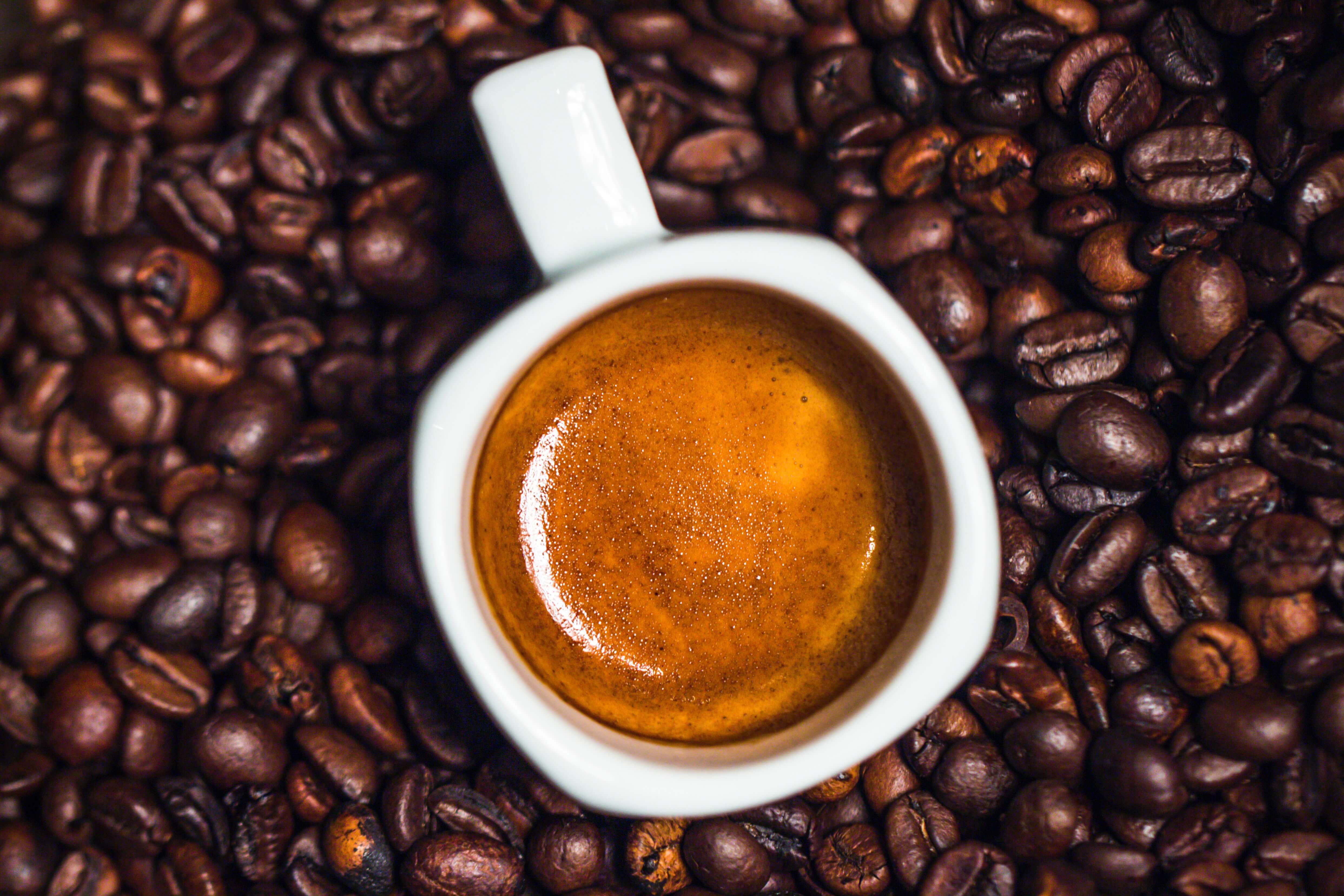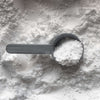A Complete Guide To Caffeine: You Say You’re Addicted To Caffeine, But Do You Really Know What It Is?

In this blog, you will learn about:
-
What is caffeine and how does it work?
-
What are some common sources of caffeine?
-
What are the effects of caffeine on the body?
-
Benefits of caffeine
-
Downsides of caffeine
-
When is the best time to consume caffeine?
-
How long does caffeine stay in the system?
-
How much caffeine is too much?
What is caffeine and how does it work?
Caffeine is a central nervous system stimulant and also the world's most widely consumed psychoactive substance. We feel tired when a naturally occurring substance called adenosine builds up in our brain throughout the day. Caffeine blocks the action of this substance, which consequently promotes alertness and neural activity.
What are some common sources of caffeine?
Caffeine can be found in many sources. We've listed some common ones here:
-
Coffee: The first drink that comes to mind when we think of "caffeine" is probably coffee, and that's no surprise as it is the most popular caffeine-containing drink worldwide. On average, an 8 oz. serving contains roughly 95 mg of caffeine.
-
Tea: Certain teas have caffeine (i.e., black and green tea). On average, an 8 oz. serving of black tea and green tea contains around 47 mg and 28 mg of caffeine, respectively.
-
Energy drinks: Drinks like Red Bull, Monster, and Rockstar have high doses of caffeine, with an average 8 oz. serving yielding about 80 mg of caffeine.
-
Soft drinks: Some soft drinks (i.e., Coca-Cola and Pepsi) contain caffeine, with an average 12oz. (355 ml) serving containing approximately 34 mg of caffeine.
-
Chocolate: Chocolate contains some caffeine, with an average 1.5 oz. (43 g) serving of dark chocolate containing about 23 mg of caffeine. Milk chocolate will generally have less caffeine, while white chocolate has minimal caffeine (as these are mostly sugar!)
-
Supplements: Caffeine is available as a supplement (i.e., caffeine pills, "fat-burners"). Caffeine supplements are commonly used by athletes and bodybuilders to enhance physical performance. Continue reading this blog to find out some additional benefits of caffeine!
Before consuming any caffeine-containing items, it's advisable to read the label, as caffeine level may vary based on the brand and preparation method.
What are the effects of caffeine on the body?
Depending on the individual, caffeine can have some positive and potentially negative effects.
Benefits of caffeine
Caffeine has several benefits, including:
-
Increased concentration and focus: Caffeine stimulates the central nervous system and increases alertness. This can lead to a short-term boost in physical and cognitive performance.
-
Improved mood and energy: Caffeine can improve mood and counter depression by reducing feelings of fatigue. Because of caffeine’s ability to lower fatigue and increase energy, it is a commonly used ingredient in energy drinks and supplements.
-
Improved athletic performance: Caffeine can improve athletic performance by increasing endurance and reducing perceived exertion (effort).
-
Pain relief: Caffeine has been shown to have pain-relieving effects and is often used as an ingredient in over-the-counter pain medications.
-
Weight loss: Caffeine can have a slight effect on weight loss, but its effects are not significant and should not be relied on as a long-term solution for fat loss. Caffeine has been shown to increase metabolism and fat oxidation temporarily, which can result in a small increase in calorie burn. It also has appetite-suppressing effects, which makes it a common ingredient in “fat loss pill.” Read our blog on How Can Boba Tea Protein Powder Help With My Muscle Gain and/or Fat Loss Goals? to learn more about the specific mechanisms of fat loss.
Downsides of caffeine
- Increased anxiety: Caffeine is a stimulant that affects the central nervous system, and for some individuals, it can lead to increased feelings of nervousness and “jitters”. This can be due to an increase in heart rate, blood pressure, and the release of stress hormones (i.e., cortisol). However, not everyone experiences anxiety from caffeine, and some people may actually find it helps them focus and improves their mood.
-
Increased urination: Caffeine is a mild diuretic, meaning it increases urine production and fluid loss, leading to dehydration if fluid intake is not sufficient. Therefore, it is important to drink plenty of water and other fluids to counteract this effect of caffeine.
-
Interference with sleep: Caffeine is a stimulant and high doses of it can interfere with falling asleep, staying asleep, and achieving deep sleep. This can result in feeling tired and drowsy during the day. It's recommended to limit caffeine intake, especially close to bedtime, to help maintain healthy sleep patterns.
-
Physical discomfort: some individuals may experience an upset stomach or heartburn after consuming caffeine.
-
Dependence and withdrawal symptoms: headaches and fatigue can occur when reducing or stopping caffeine intake.
It's important to note that individual tolerance and sensitivity to caffeine can vary. Those consuming caffeine should be aware of one’s own individual tolerance, as some people may experience more or fewer side effects than others.
When is the best time to consume caffeine?
The optimal time to ingest caffeine may vary depending on a person's metabolism, sleeping patterns, and personal preferences. Generally speaking however, the morning or early afternoon are the best times to consume caffeine.
Caffeine can increase alertness and productivity throughout the day if it is consumed in the morning, as caffeine can activate the central nervous system, improve mental attention, and lessen fatigue symptoms. However, consuming coffee too late in the day can interfere with your ability to fall asleep since it can stay in your system for several hours and prevent your body from naturally winding down.
Importantly, the amount of caffeine consumed can also determine the best time to consume it. For instance, some may find that consuming caffeine in the afternoon (or even in the evening) doesn't significantly impact their ability to fall asleep. However, those who are more sensitive to caffeine or have lower tolerance may have trouble sleeping even if it is consumed early in the day.
How long does caffeine stay in the system?
Caffeine's typical half-life is 4 to 6 hours, which means it takes that long for the body to process and excrete half of the caffeine that is taken in. However, depending on the dose and personal tolerance, caffeine effects can last for a number of hours after consumption.
Although caffeine is quickly removed from the body, its effects on the central nervous system might linger for several hours after consumption, which can cause trouble sleeping or other negative side effects. Caffeine may need to be avoided in the evenings or used in moderation overall if a person is sensitive to it or has difficulties falling asleep.
How much caffeine is too much?
The amount of caffeine that is considered "too much" can vary depending on factors (i.e., individual tolerance, weight, and age). As a general guideline, the American Medical Association (AMA) recommends that healthy adults limit their caffeine intake to no more than 400 mg per day (the equivalent of approximately 4 cups of brewed coffee). Consuming more than this amount can lead to some negative symptoms described in a previous section (e.g., insomnia, anxiety, etc.). Pregnant women should limit their caffeine intake to no more than 200 mg per day. It's important to note that some sources of caffeine (i.e., energy drinks) can contain much higher doses than coffee. Thus, it's important to be mindful of total caffeine intake from all sources.








